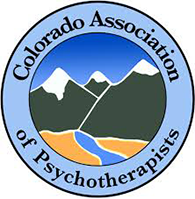What causes joy, serenity, hope, and trust to die in us? The number one cause is . . .
. . . Trauma.
And none of us are exempt.
This week I attended a presentation by Dr. Michael F. Barnes, Clinical Program Manager, at CeDAR, University of Colorado Hospital. It was one of the finest presentations I’ve heard on the subject of how trauma impacts addictions.
Here is just a small portion of what he shared in his presentation, “Families, Trauma, and Addiction”. I have also contributed some additional information for your consideration.
Worldwide, it is estimated that two-thirds of the population have been exposed to traumatic events that meet the DSM ( Diagnostic and Statistical Manual of Mental Disorders) stressor criteria for PTSD (Post-traumatic stress disorder) .
According to the National Center for PTSD
- 61% of men and 51% of women report having experience at least one traumatic event in their lifetime.
- 10% of men and 6% of women report having experience four or more traumatic events in their lifetime.
- Among persons who develop PTSD, 52% of men and 28% of women are estimated to develop an alcohol use disorder.
- 35% of men and 27% of women develop a drug use disorder.
- The numbers are even higher for veterans, prisoners, victims of domestic violence, first responders, etc.
I suspect these statistics are under reported.
What is trauma?
The experience of a real or perceived threat to life or bodily injury to self or a loved one that causes an overwhelming sense of horror, helplessness, and fear.
How are we traumatized?
- Direct personal experience
- Witness an event that involves death, injury, or threat to the physical integrity of another person
- Learning about unexpected or violent death, serious harm, or threat of death or injury experienced by a loved one or close associate.
What events cause trauma?
- Combat veterans, First Responders
- Natural disaster events – hurricanes, earthquakes, tornadoes, floods, fires, etc.
- High speed events – car or bike accidents, falls
- Assault events – assault, rape, incest, animal attacks
- Global threat events – drowning, electrocution, terrorist attacks
- Major illness/hospital events – cancer, heart attacks, surgery
- Cyclical trauma – anniversary of major traumatic event
- Family trauma – divorce, affairs, death of loved ones
- Abandonment or attachment trauma – adoption, kidnapping, POWs, miscarriage
What happens in the brain when we are traumatized?
Trauma elicits a powerful self-protective response of fight, flight, or freeze.
- Fight – crying, clenching fists, grinding teeth, rage, glaring
- Flight – restlessness, running, fidgeting, anxiety, shallow breathing
- Freeze – numbness, stiffness, holding breath, coldness
What are the most common symptoms of traumatic stress?
- Anxiety – trembling, shaking, feeling on edge, worrying, startling
- Fear – expressed in the fight, flight, or freeze responses
- Sustained emotions of grief, guilt, horror, terror, shock, hurt, frustration, or shame
- Depression – sadness, wanting to cry, feeling hopeless, loss of will to live, avoiding people, worthless feelings
- Dissociation – feeling outside the one’s body, mind going blank, watching self from far away, not feeling like real self, frequent daydreaming, absent-mindedness
- Anger/Irritability/conflict – easily annoyed, provoking arguments, flared anger at unexpected times, yelling, striking out
- Intrusive experiences – nightmare, flashbacks, re-directed thoughts to bad memories
- Sleep disturbance
- Fatigue
- Startle response
- Sexual concerns – dissatisfied with sex life, negative thoughts or feelings during sex, confusion about sexual feelings, feeling shame about sexual thoughts, wishing to stop sexual thoughts
- Impaired self-reference – feeling empty inside, not knowing real self, not understanding own behavior, needing others to give instructions, feelings and thoughts dissuaded by others
- Feelings or obsession, intrusive thoughts, uncertainty, self blame, fault finding, resentment, hopelessness, helplessness
- Sense of a foreshortened future – “We’re going to die!”
How do we try to manage trauma?
- Defensive avoidance – trying to forget bad times; avoiding negative feelings or thoughts, avoid people who cause discomfort, avoiding grief or regret, numbing
- Hypervigilance – being “on” always scanning the environment for signals of danger
- Feeling a need to control others behavior, the environment, and one’s own expression of emotion
- Denial
- Rationalization
- Intellectualization
- Projection
- Distraction
- Addiction
How do we get stuck in trauma?
It is not the trauma event itself that is problematic; it is the unresolved trauma symptoms and dysfunctional defenses that cause the internal death of joy, serenity, hope, and trust.
How do we get UNstuck in trauma?
Care needs to be provided at four levels.
Physical Care
- Eat healthy
- Exercise
- Sleep
- Play
- Vacation
- Cultivate healthy sexual experiences
- Maintain health care
Psychological Care
- Take time to reflect
- Journal
- Get personal therapy
- Decrease life stressors
- Be curious
- Dare to risk and try new things
Spiritual Care
- Find a spiritual connection or community
- Be open to inspiration
- Be open to not knowing
- Connect to nature
- Meditate
- Pray
- Sing
- Dance
- Create
Relationship Care
- Stay connected to tonic, not toxic, people
- Participate in meaningful, enjoyable, satisfying activities
- Set boundaries
- Avoid co-dependency, enmeshment, and enabling
- Allow authenticity in proven trusted relationships
Please do not allow the tragedies and traumas of your life to result in the death of your joy, serenity, hope, and trust. Take the steps you need to care for yourself physically, psychologically, spiritually, and relationally. You deserve to live in the fullness of joy, serenity, hope, and trust.


